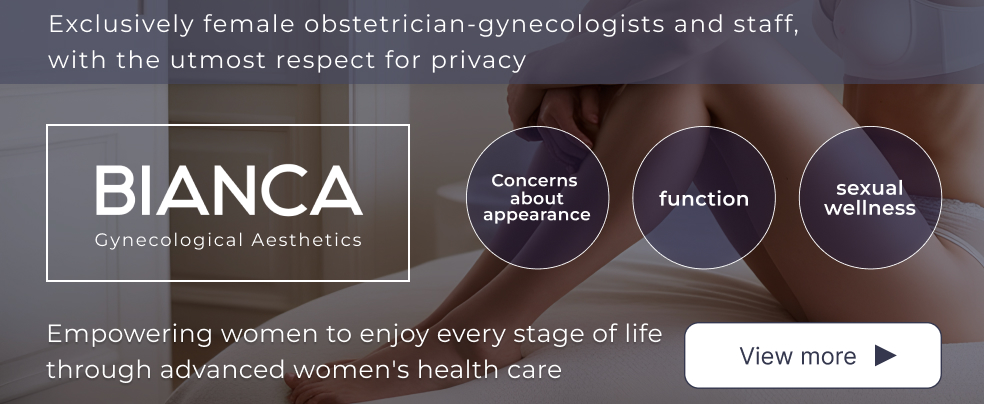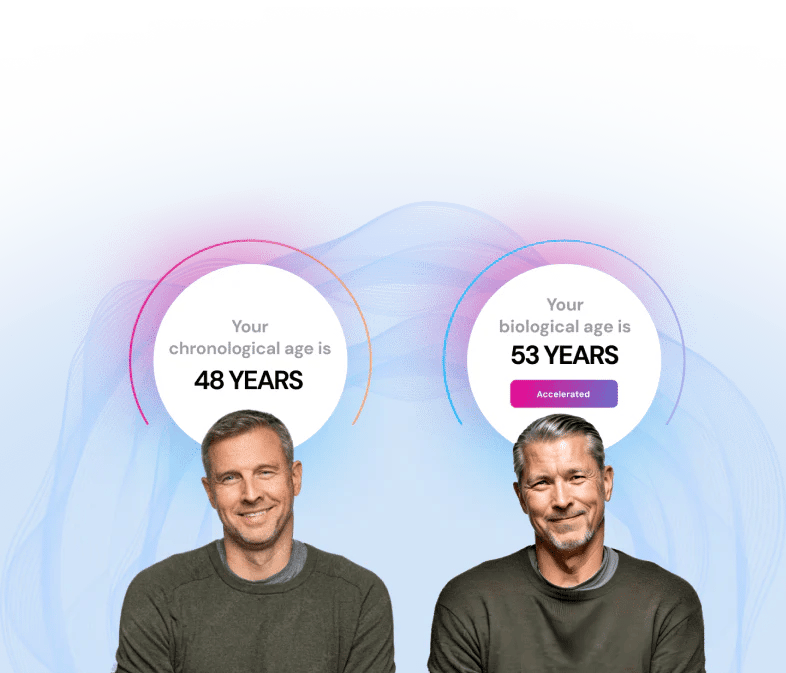Have you ever wonder why do some people look younger than others? That’s probably because their biological age is younger than their actual chronological age.
Epigenetic Clock (Biological Age Testing)
Your biological age isn’t just a number on your birth certificate; it reflects how old your body truly is on a cellular level. Unlike chronological age, which simply counts the years you’ve been alive, biological age considers factors like DNA methylation, lifestyle habits, and overall health to determine how well your body is aging.
For example, two people might both be 40 years old, but if one has a healthy lifestyle and the other doesn’t, their biological ages could be significantly different. A younger biological age means a lower risk of age-related diseases, better physical condition, and potentially a longer lifespan
Rejuvenating Your Internal Age
The Epigenetic Clock (Biological Age Test) is a method to understand your body’s true age. By measuring aging levels through a blood test, we can propose personalized anti-aging treatments. At BIANCA Clinic, we complement the Epigenetic Clock test with orthomolecular blood testing to provide tailored anti-aging care for each individual.
Features of the Treatment
What is the Epigenetic Clock (Biological Age Test)?
The Epigenetic Clock is a method for assessing the biological age of your body. While chronological age is determined by your birthdate, your biological age varies depending on individual factors.
DNA methylation refers to the binding of methyl groups to DNA. Research has shown that DNA methylation significantly influences biological age. The Epigenetic Clock calculates your body’s age by analyzing the methylation of DNA in your blood.
Difference Between the Epigenetic Clock and Telomere Testing
Both the Epigenetic Clock and Telomere Testing are methods for measuring biological age, but they have different mechanisms.
- Epigenetic Clock
The Epigenetic Clock is globally regarded as a more reliable method for measuring biological age. It uses AI to detect changes in the attachment and detachment of methyl groups on DNA, accurately predicting biological age. - Telomere Testing
Telomeres are structures at the ends of chromosomes that protect them. With repeated cell division, telomeres shorten, which may increase susceptibility to diseases. Telomere Testing measures genetic age based on the length of telomeres.
Why Choose BIANCA’s Epigenetic Clock (Biological Age Test)?
1. Personalized Anti-Aging Treatment Proposals
Lifestyle improvements and supplement intake can be effective anti-aging measures, but their effects can often be hard to quantify. By using the Epigenetic Clock to accurately determine biological age, we can create personalized treatment plans for each individual.
2. Scientifically Reliable Measurement Methods
While other methods, such as Telomere Testing, are available, the Epigenetic Clock is considered the most scientifically reliable method. At BIANCA Clinic, we employ cutting-edge testing methods rarely available in Japan to measure biological age.
3. Simple Blood Test with Accurate Results
The Epigenetic Clock (Biological Age Test) is straightforward—just a blood draw. Approximately 6 to 8 weeks after the test, detailed results will be sent from the United States, and a doctor will explain the findings to you.
Understand your true biological age and take the first step toward personalized anti-aging care with BIANCA Clinic’s advanced testing methods.
Understanding and improving your biological age can help you take proactive steps to live a healthier, more vibrant life. At our clinic, we offer personalized assessments and treatments to help you reduce your biological age, from targeted skincare to hormone optimization.
Profile of Dr. Yoko Maeda, Specialist in Aesthetic Internal Medicine
Dr. Yoko Maeda began her medical career with initial training at the Okinawa Prefectural Nanbu Medical Center and Children’s Medical Center, followed by working in the Radiology Department of Kyoto Prefectural University of Medicine and at aesthetic clinics. Her encounter with high-dose vitamin C infusion therapy at a seminar held by the Intravenous Therapy Research Group led her to study abroad as a research fellow at the Riordan Clinic in the United States. Among her many achievements, she became the youngest individual to pass the certification exam of the American Academy of Anti-Aging Medicine (A4M).
Currently, Dr. Maeda serves as a Specialist in Aesthetic Internal Medicine at BIANCA (BIANCA Clinic).
Role as a Specialist in Aesthetic Internal Medicine
Dr. Maeda focuses on achieving healthy beauty by treating the body from within. As an expert in anti-aging care that targets the internal aspects of aging, she offers personalized treatment plans to help patients maintain their vitality and youthfulness. Her specialties include:
- Natural Hormone Replacement Therapy
- Peptide Therapy
- Supplement-based Treatment
Through these methods, she supports patients in improving their physical constitution and sustaining long-lasting youth.
Affiliations and Certifications
- Board Member of the Japanese Society of Aesthetic Internal Medicine
- Certified Specialist of the American Academy of Anti-Aging Medicine (A4M)
- Fellowship in Anti-Aging, Metabolic, and Functional Medicine by A4M
- Certified Chelation Specialist by the American College for Advancement in Medicine (ACAM)
Dr. Maeda brings her extensive expertise and global perspective to provide cutting-edge treatments that enhance both health and beauty.



